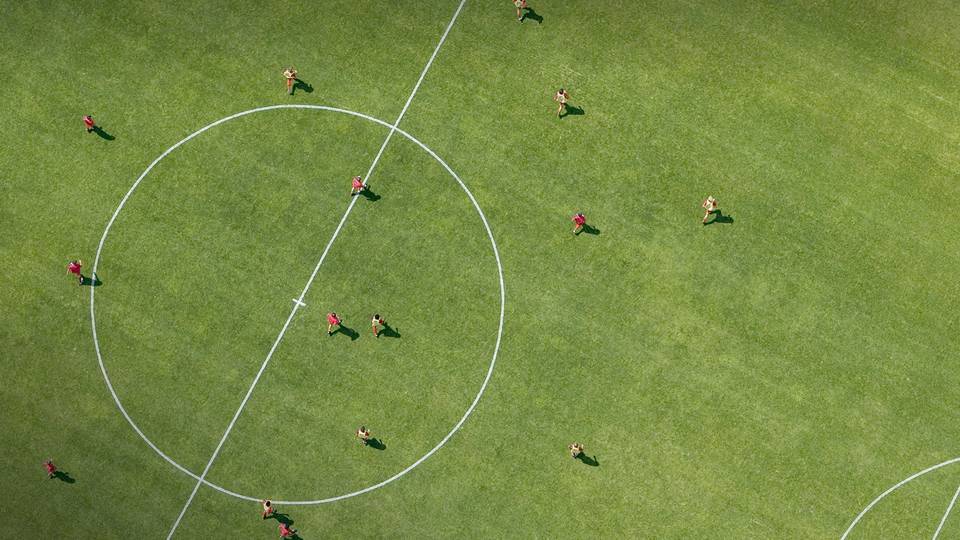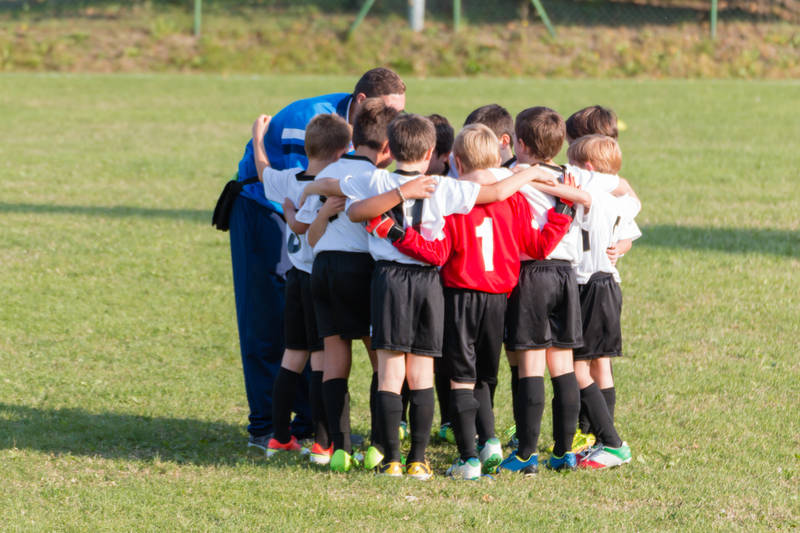Organising football at the U8 level focuses on developing fundamental skills and fostering a love for the game in young players. Children aged 7-8 need activities that blend fun with basic technical development, incorporating dribbling exercises, simple ball control techniques, and small-sided games. Effective U8 football organisation should prioritise motor development including running, skipping, turning and jumping alongside football-specific skills to build a strong foundation for future development.
Across the UK, grassroots U8 football programmes create environments where young players can thrive through age-appropriate training sessions and matches. These programmes typically emphasise participation over competition, ensuring every child receives adequate playing time and positive encouragement. A well-structured U8 session might begin with a 5-minute activation featuring footwork and balance exercises before progressing to more football-specific activities.
The focus at this developmental stage remains firmly on player enjoyment and engagement rather than tactical complexity or match results. Many coaches find that 15-20 minute training segments with variety keep young players engaged, while small-sided games (often 4v4 or 5v5) provide the perfect platform for skill application in a fun, low-pressure environment. This approach aligns with modern youth soccer philosophies that recognise the importance of early positive experiences in creating lifelong participants in the sport.
Understanding U8 Football
At U8 level, players are beginning to develop more complex football concepts while still focusing primarily on fundamental skills and enjoyment. This critical developmental stage requires appropriate organisation, supportive adults, and structured development goals to maximise each child's potential.
Fundamentals of U8 Football
U8 football represents a crucial transitional period where young players begin building on basic skills while gaining a deeper tactical understanding. Children at this age can comprehend more advanced football concepts, though dribbling remains a primary focus.
Training sessions should incorporate a mixture of technical development, motor skills and fun activities. A typical session might include:
- Small-sided games (typically 7v7 format)
- Dribbling exercises focusing on close control
- Basic passing and receiving drills
- Simple tactical concepts like pressing
Movement skills such as running, jumping, turning and skipping should be integrated into football activities to develop overall motor skills. Sessions should remain engaging with minimal queuing or inactive time to maintain the young players' interest and enthusiasm.
Role and Responsibilities of Adult Members
Adults involved in U8 football play vital roles in creating positive learning environments. Coaches must balance technical instruction with maintaining enjoyment and fostering a love for the game.
Key responsibilities include:
- Coaches: Focus on player-centred approaches, understanding individual needs and developmental stages while creating safe, engaging sessions
- Parents/Guardians: Provide positive encouragement without creating pressure
- Club Officials: Ensure appropriate pitch sizes, equipment and fixtures
Adults should adopt a supportive, encouraging attitude that emphasises skill development and enjoyment over winning. Understanding that each child develops at different rates is essential. Communication between all adult members creates consistency in approach and expectations, benefiting the players' overall experience.
Player Development and Season Totals
Tracking development through the season helps monitor progress and identify areas needing attention. Rather than focusing solely on match results, consider these developmental markers:
Individual Skill Progress:
- Technical improvements (dribbling, passing, ball control)
- Decision-making abilities
- Confidence with the ball
Collective Development:
- Understanding of basic positioning
- Teamwork and communication
- Enjoyment and participation levels
Some clubs use simple metrics to track season totals like participation rates, skill achievements, and practice attendance. These measurements should remain positive reinforcement tools rather than creating pressure.
TeamStats.net features can help track these developmental aspects while keeping the focus on progress rather than just match outcomes. The ultimate goal is developing well-rounded young footballers who enjoy the sport and want to continue playing.
Organising U8 Fixtures and Results
Proper organisation of fixtures and results is vital for running successful U8 football programmes. Keeping track of matches and outcomes helps monitor player development while providing structure to the season.
Scheduling and Planning Matches
Creating a functional fixture list requires careful planning at the start of the season. Contact local clubs early to arrange home and away fixtures, typically scheduling matches on Saturday or Sunday mornings. Most U8 competitions play 5v5 or 7v7 formats on smaller pitches with mini goals.
Consider school holidays, local events and potential weather disruptions when creating your calendar. Many clubs use a shared online calendar to keep parents informed about upcoming fixtures.
Always confirm match details with opposition coaches 3-4 days before the game. This includes kick-off time, venue directions, pitch surface and kit colours to avoid clashes.
For tournaments, register well in advance as popular events fill quickly. These provide excellent development opportunities with multiple matches in a single day.
Recording and Reporting Results
While competitive leagues rarely exist at U8 level, recording match outcomes remains important for tracking development. Create a simple spreadsheet or use TeamStats.net to log basic match information.
For each fixture, record:
- Date and opposition
- Score
- Player attendance
- Goalscorers
- Notable performances
This data helps identify patterns in team performance over time. Many coaches track metrics like goals scored, clean sheets and team season totals to measure progress.
Share brief match reports with parents via email or team WhatsApp groups. Focus on positive aspects of play rather than just results, highlighting improvements in skills practised during training sessions.
Some local football associations require match results to be submitted, even at this age group. Check your league handbook for specific reporting requirements and deadlines.
U8 Football Club Operations
Managing a U8 football club requires careful organisation and attention to detail. Successful clubs balance administrative responsibilities with creating a positive environment for young players to develop their skills.
Running a U8 Football Club
Effective U8 club operations begin with assembling a dedicated volunteer team. A club coordinator, coach, assistant coach, and parent liaison form the core of most successful setups. Each role should have clearly defined responsibilities to avoid confusion.
Training sessions for U8 teams should focus on fun, basic skills development, and motor skills. According to coaching resources, sessions should incorporate dribbling exercises, small-sided games, and simple decision-making activities.
Match days need careful planning. Create a rotation system ensuring all children get equal playing time, regardless of ability. This approach promotes inclusive development at this crucial age.
Equipment requirements are modest but essential. Ensure you have appropriate-sized balls (size 3), small goals, training bibs, and cones. Keep a first aid kit accessible at all sessions.












